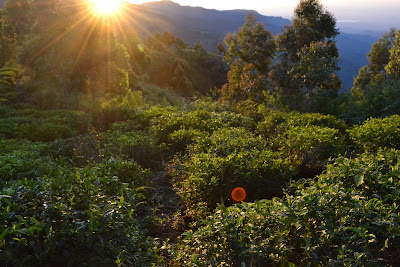Imagine an election with 13 candidates, where the front-runner changes every week and no one knows who is going to pull ahead the next day. Picture a presidential vote in a place with no history of free and fair elections, a judicial system dominated by officials appointed by an authoritarian dictator, a council of generals running the country's affairs, no reliable opinion polls, and a constitutional crisis.
Ahlan wa sahlan fi Masr. Welcome to Egypt! Sixteen months after protesters in Tahrir deposed President Hosni Mubarak, Egyptians took to the polls on Wednesday and Thursday to elect their first president in a vote observers said was largely free of forgery and vote-rigging. It was the third time people here had voted since Mubarak stepped down – first for a constitutional referendum last spring, and then in parliamentary elections in the fall – and it seems to have gone relatively smoothly considering the fact that the biggest question in elections past was, in terms of final percentages, how high in the 90s the dictator would receive.
This time marked the first time in modern Egyptian history when the victor remained unknown before the polls opened. It was a topsy-turvy race that lasted only a couple months amid a transition period that has included massive protests against military rule and a debate over the constitution as Egyptians contemplate the relationship between religion and state.
The leading candidates for a while appeared to be Amr Moussa, a former foreign minister and Arab League secretary, and Hazem Abu Ismail, a bearded, baby-faced, ultraconservative Islamist preacher whose supporters – known as Hazemoon – were absolutely obsessed with him. Moussa ended up coming in fifth place, while election officials disqualified Abu Ismail since his deceased mother had taken American citizenship a few years back; legally, an Egyptian president can’t have a parent with foreign citizenship.
Two additional candidates dominated discussion for a bit, but were subsequently disqualified for questionable reasons: Omar Suleiman, Mubarak’s head of intelligence who the former president appointed vice president during the uprising, and Khairat el-Shater, the Muslim Brotherhood’s former deputy leader.
The Brotherhood’s backup candidate, Mohamed Morsi, polled in the single digits in the weeks preceding the vote, but polls here are notoriously poor, and he ended up taking first place. It’s pretty surprising since Morsi seemed somewhat lackluster in person – I attended a rally of his – although the Brotherhood did run a pretty robust get-out-the-vote operation; for example, I heard that a bunch of Brotherhood vans and tok toks in my friend’s Nile Delta village ferried voters to and from the polls.
The dark horse was definitely Hamdeen Sabahi, a proponent of the pan-Arabism of former President Gamal Abdel Nasser, and the
Arab version of Jay Leno. He’s been an opposition figure for decades but came out of nowhere at the last minute in this election. Up until the final few days before the poll, I had hardly heard his name, but he ended up coming in a close third.
One reason the results remained unclear up until the end was the relatively large percentage of undecided voters. I heard that in some cases illiterate Egyptians arrived at the polling place with absolutely no idea what to do or whom to vote for, and other people were still trying to make up their mind in line outside elementary schools-turned-polls. With no history of free elections and poor voter education, many Egyptians struggled to pick their man out of the 13 choices.
In the end, Morsi and Ahmed Shafiq, a former air force commander who was Mubarak’s last prime minister, came in first and second, respectively. They’ll proceed to a runoff on June 16 and 17, since no one candidate won a majority of votes. The two candidates are quite polarizing, and the over 50 percent of people who didn't vote for them last week essentially have to choose between a Mubarak-esque figure and an Islamist. This, as you might expect, puts many liberals in a bind.
This weekend, candidates who didn't make the next round contested the vote, although the presidential electoral commission rejected their appeals today. This evening, thousands are reportedly marching through Alexandria and Cairo to express their anger over the way things have turned out.
I contributed to The National’s coverage of the election with three articles: one on the candidate
Abdel Moneim Aboul Fotouh, a self-styled liberal Islamist who came in fourth; another on
women and the vote; and a final one from the coastal city of Alexandria on the
first day of polling.
It’ll be an interesting couple of weeks. And oh yeah, they’re announcing the verdict in Mubarak’s nearly year-long trial this Saturday.











































